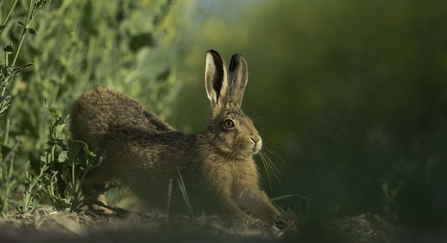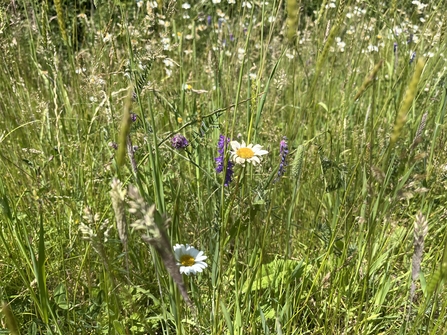A decade-long nature-friendly farming project has helped to increase the diversity and abundance of wildlife across farmland and prompted the return of rare species such as the butterfly orchid and red-listed birds such as the nightingale.
The Jordans Farm Partnership between The Wildlife Trusts, Jordans Cereals and LEAF (Linking Environment And Farming), has seen 27 farms across England develop bespoke conservation plans to help improve wildlife habitat on their farm. This includes creating features like hedgerows, field margins and ponds, and improving habitat connectivity with neighbouring landowners.
Since the partnership began in 2015, over half the participating farmers say they have seen new or returning species, many of which are endangered and of conservation concern, including birds appearing on the UK’s Red List for Birds such as tree sparrow, nightingale and goshawk, and the rare plant meadow clary, which is only found at 26 sites across the UK. Other success stories include the return of breeding stone curlew in Hampshire, scarce emerald damselfly in Suffolk and brown hare in Leicestershire.


